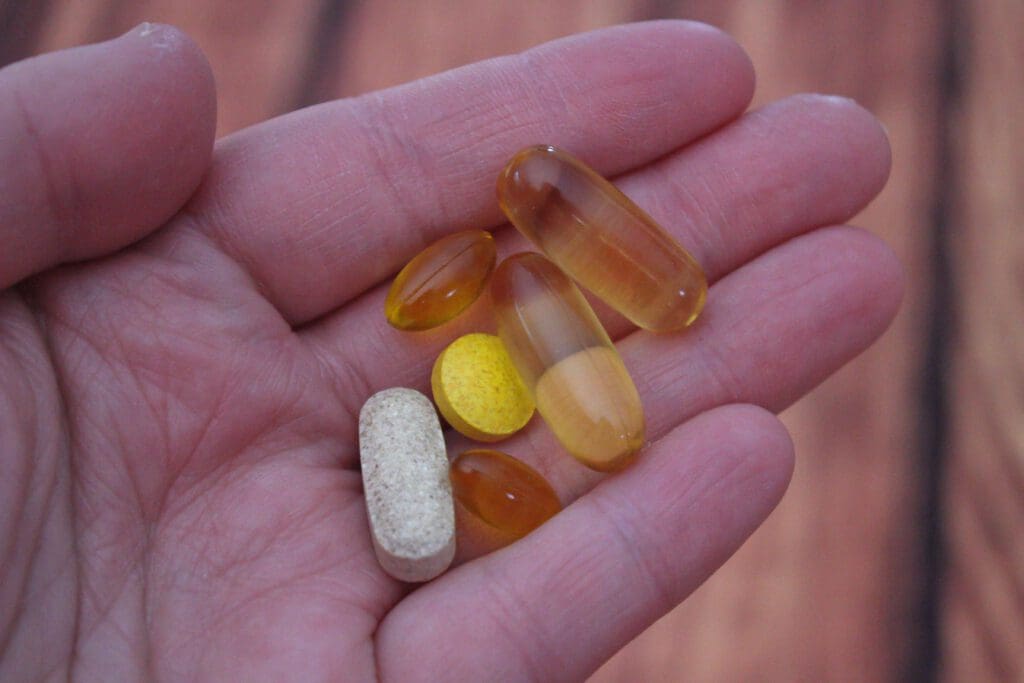Guide to Drusen: What They Are & Why It Matters
Home / Eye Conditions & Eye Diseases /
Last Updated:
Drusen are small lipid deposits that occur in the retina or optic nerve. There are two different types of drusen.
Although their cause is not fully understood, there are risk factors associated with their development.
The presence of drusen has not been identified as a cause for macular degeneration but might be associated with its development. Drusen are not directly responsible for visual loss.

If you have drusen, you probably will not know until you have an eye exam, as the symptoms are relatively benign unless you develop macular degeneration. In addition to developing in the retina, drusen can also develop in the optic nerve.
In most cases, drusen will not just disappear. There are no approved effective treatments for drusen, but there may be some interventions that can help.
The best thing you can do if you have drusen is get annual eye exams, and follow the recommendations of your physician.
Simply having drusen in your retina is not a sign that you will develop macular degeneration. It’s normal to have some drusen in the retina as you age.
What Are Drusen?
Drusen (the German word for rocks) are small white or yellow lipid deposits that accumulate under the retina of your eye. Lipids are fatty proteins.
Table of Contents
The retina is the thin layer of tissue that lines the back surface of your eye. It contains the cells that are essential for your ability to see. It also has many veins and arteries that keep it functioning.
You deserve clear vision. We can help.
With 135+ locations and over 2.5 million procedures performed, our board-certified eye surgeons deliver results you can trust. Your journey to better vision starts here.
Different Types of Drusen
Drusen are tiny pockets of debris that build up over time.
Researchers have identified two different types of drusen: hard drusen, which are small and tend to be spread out, and soft drusen, which are larger and cluster together.
Hard drusen typically do not cause problems, and they do not require any intervention.
Soft drusen have been associated with the development of age-related macular degeneration, also referred to as macular degeneration, a serious eye disease. Macular degeneration is the leading cause of visual loss in people over the age of 50.
As soft drusen get larger, it is believe that they may result in bleeding and scarring in the macula, a structure in the center of the retina that processes stimuli in the central field of vision (straight ahead). Soft drusen may result in a softening of the macula, interfering with its function (visual acuity in the center of the visual field).
Risk Factors for the Development of Drusen
Some of the risk factors that are believed to be associated with the development of macular degeneration and drusen include:

- Being female and/or Caucasian.
- A family history of macular degeneration.
- High levels of cholesterol or cardiovascular disease.
- Using tobacco products, especially smoking.
- Being older, especially over the age of 65.
Do Drusen Cause Macular Degeneration?
It is unclear at this time if soft drusen actually cause the development of macular degeneration, but they appear to be associated with its development.
Thus, large drusen in the retina may be a risk factor for the development of macular degeneration.
Do Drusen Cause Visual Loss?
The presence of drusen will not result in total blindness, but macular degeneration may produce central vision loss. This involves difficulty focusing on details that are straight in front of you.
The presence of the hard type of drusen is not directly associated with any type of eye disorder, but it may increase your risk to develop the soft drusen type.
Symptoms of Drusen
People with drusen usually do not experience any symptoms. Drusen are typically first observed during a routine eye examination when the ophthalmologist inspects the retina.
There may be some mild symptoms associated with the presence of drusen or macular degeneration. These signs include:
- Seeing straight lines as curvy.
- Hazy or blurry vision.
- Difficulty adapting from a brightly lit room to a low-lit room or environment.
- Blank spots in the center of your visual field.
You deserve clear vision. We can help.
With 135+ locations and over 2.5 million procedures performed, our board-certified eye surgeons deliver results you can trust. Your journey to better vision starts here.
Optic Nerve Drusen
Drusen can also develop in the optic nerve. In many cases, this situation is benign.
Optic nerve drusen are more common in children. They are not associated with aging.
If optic nerve drusen affect vision, peripheral vision is usually affected.
Can Drusen Just Go Away?
If your ophthalmologist suspects you have drusen, it is important to find out what type.
Hard drusen typically do not require any treatment. There is no approved treatment for soft drusen, but there are interventions that can be used for macular degeneration.
Very rarely, drusen may disappear. If you have macular degeneration associated with your drusen, macular degeneration will usually not remit even if the drusen disappear.

Interventions for Drusen
A recent study found that laser treatment could shrink the size of drusen or decrease their number, but it did not prevent the progression of macular degeneration.
Taking mega vitamin supplements or making dietary changes will not make existing drusen go away. However, nutritional supplements that contain specific nutrients, such as vitamin C, vitamin E, zinc, and copper, may slow the development of drusen and even the progression of macular degeneration in some cases.
What Can You Do?
Understand that the development of drusen in the retina is normal as you age. Having large numbers of drusen in your retina is only a sign that you may be at risk to develop macular degeneration.
An annual eye exam can alert you to any problems that may be occurring, and you can then take steps to address those issues.
If you are diagnosed with macular degeneration, you might be able to slow the progression of the disease by taking a nutritional supplement and engaging in any interventions offered by your physician.
A Final Word
The take-home message is that simply having drusen in your retina is not necessarily a sign that you will develop macular degeneration. In fact, the presence of some drusen in your retina is normal as you get older.
If you have a preponderance of the soft type of drusen, you may be at risk to develop macular degeneration, but there is no guarantee that you will develop the disorder.
You deserve clear vision. We can help.
With 135+ locations and over 2.5 million procedures performed, our board-certified eye surgeons deliver results you can trust. Your journey to better vision starts here.
References
- What Are Drusen? (May 2019). American Academy of Ophthalmology.
- Drusen Prevalence and Pigmentary Changes in Caucasians Aged 18–54 years. (October 2012). Eye.
- Symptoms of Age-Related Macular Degeneration. (January 2018). WebMD.
- Optic Nerve Drusen. (February 2018). American Academy for Pediatric Ophthalmology and Strabismus.
- Laser Treatment of Drusen to Prevent Progression to Advanced Age-Related Macular Degeneration. (October 2015). Cochrane Database.
- Facts about Age-Related Macular Degeneration. (November 2018). National Eye Institute.
This content is for informational purposes only. It may have been reviewed by a licensed physician, but is not intended to serve as a substitute for professional medical advice. Always consult your healthcare provider with any health concerns. For more, read our Privacy Policy and Editorial Policy.